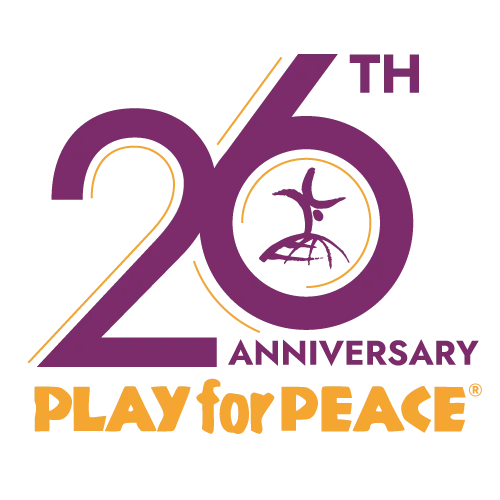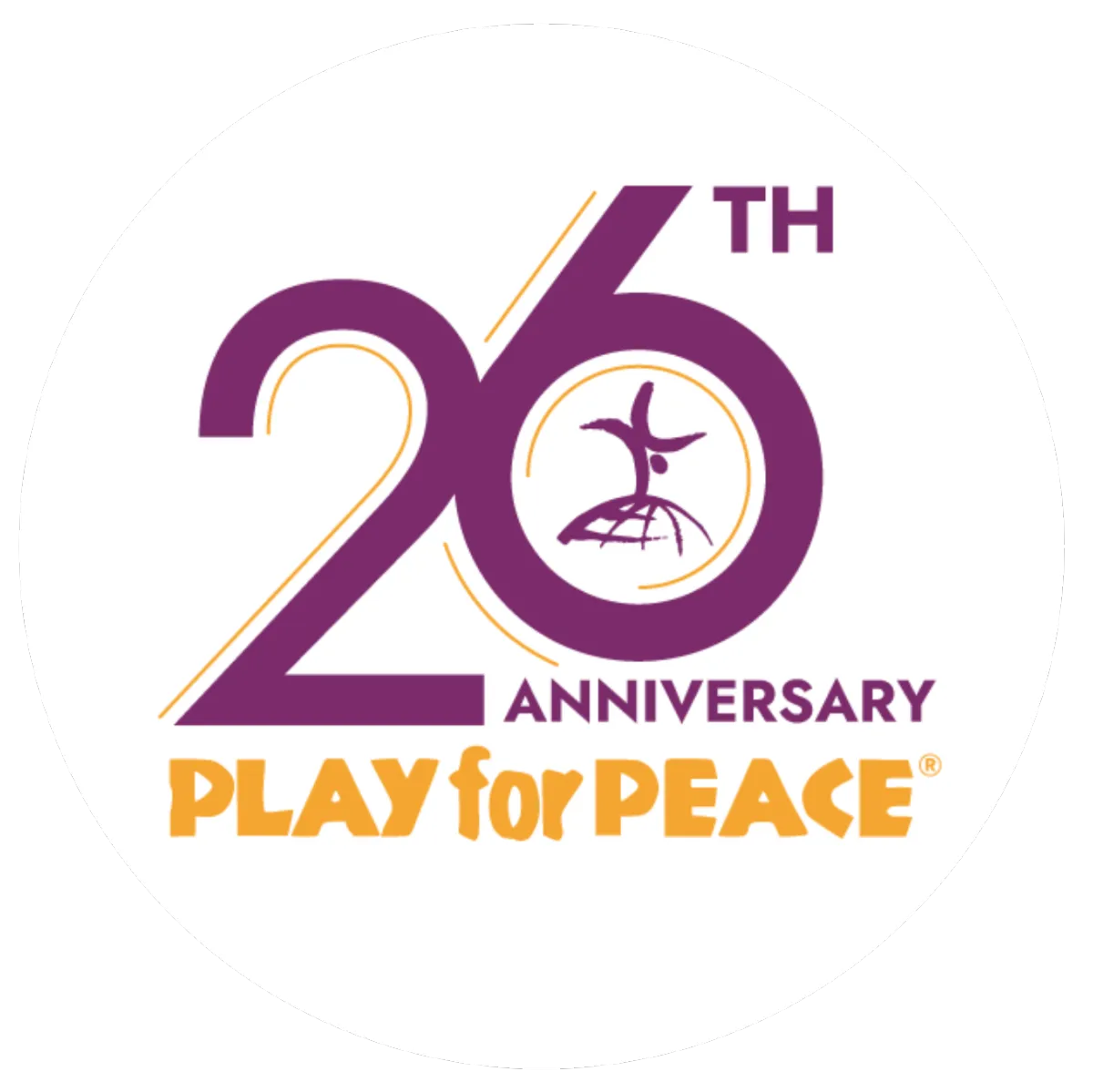Conflict to
Compassion
Play for Peace supports individuals and organizations who are passionate about children to transform conflict into meaningful and impactful learning experiences, fostering laughter, compassion, and lasting peace worldwide.*
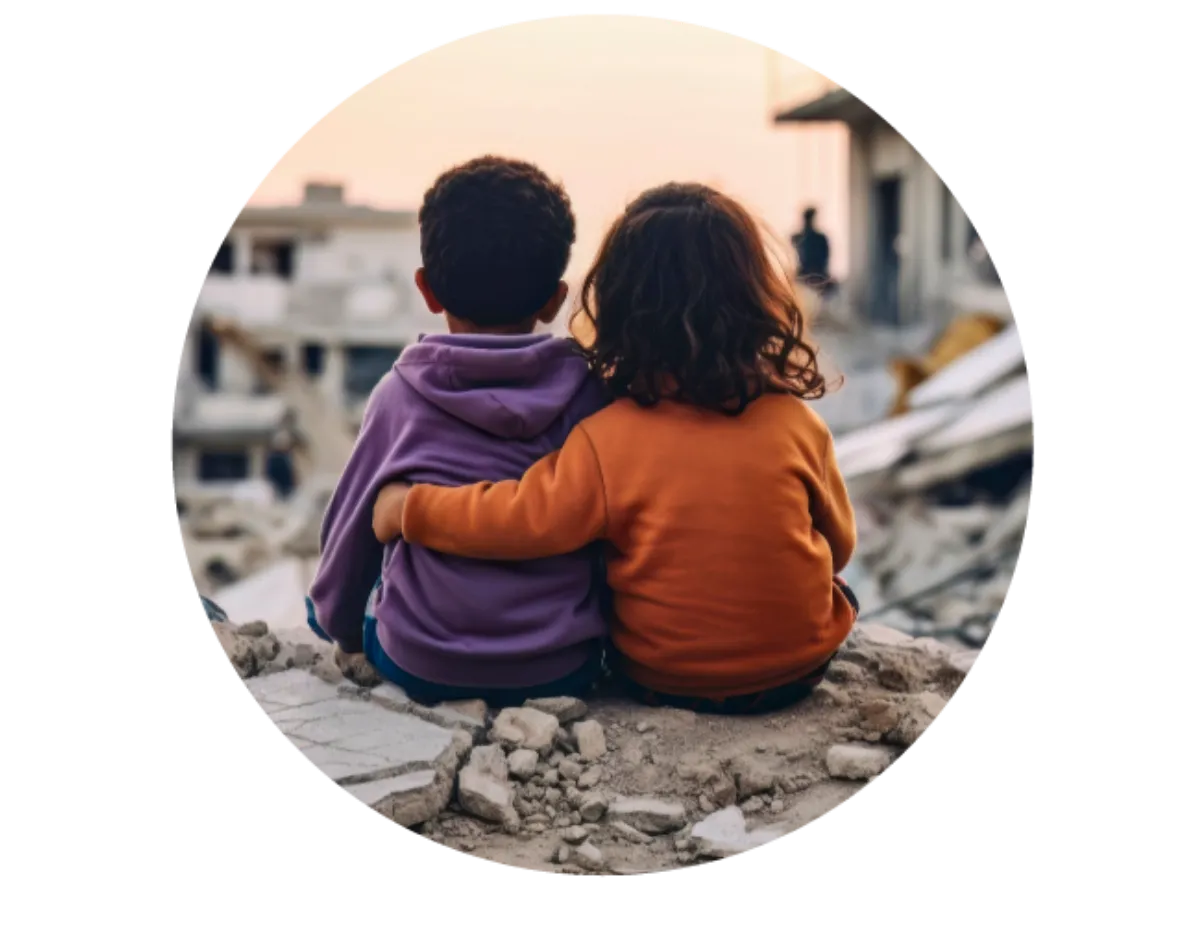
2 Billion People Live In Countries In Conflict, including 1 In 6 Children.
Growing up in conflict zones comes with devastating costs. Constant proximity to violence, instability, and fear robbing them of safe spaces to learn, play, and grow. Conflict stifles cognitive growth, strains mental health, and denies them the opportunities every child deserves – a life of possibility, connection, and peace. Many face malnutrition, a lack of education, and emotional trauma, with long-term effects that can perpetuate cycles of conflict and poverty.
And conflict impacts children everywhere, not just in war zones. Exposure to violence—whether in communities, media, or at home—can disrupt a child’s development, leading to trauma that affects mental health, learning, and future opportunities.
Together We Can Make A Difference
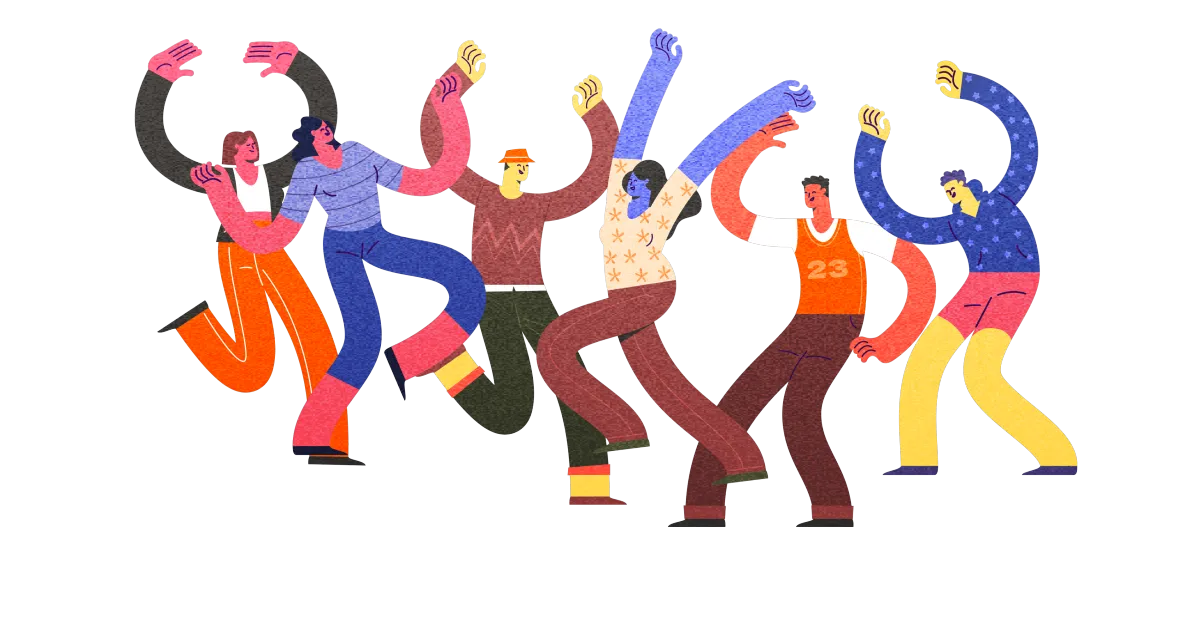
Local Leaders
Catalyze Change
As a grassroots, global organization, Play for Peace has been driving personal and community power-building and positive change in high-violence environments for over 25 years, supporting generations of active peace builders at the local level.
We also use our skills and knowledge in high violence, Play for Peace is integrated into schools, community centers, refugee camps and/or local organizations, where local youth leaders are trained to conduct "Practice Peace" cooperative play sessions for younger children and community building projects that benefit entire neighborhoods.
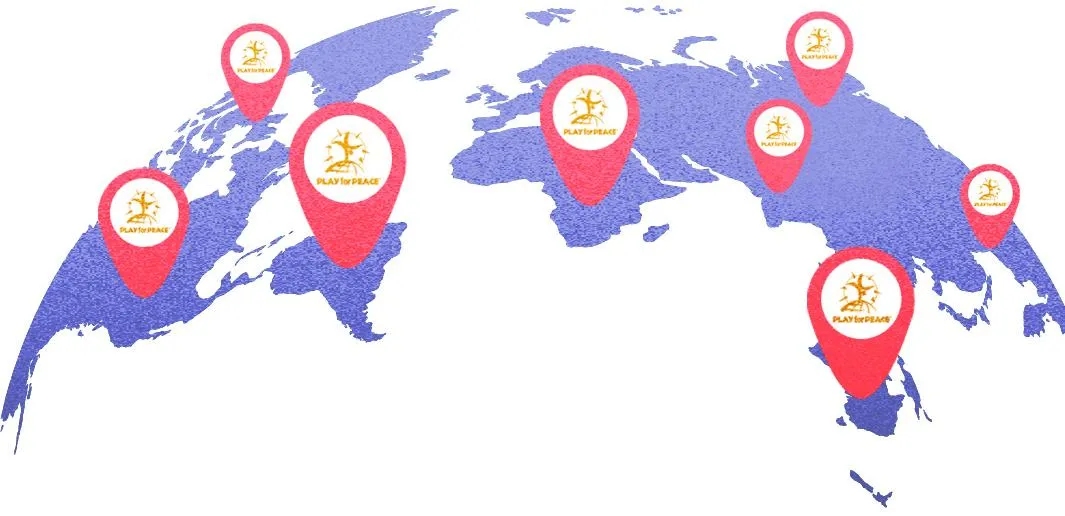
Around the Globe
Any time, day or night, Play for Peace is happening somewhere in the world. In dozens of communities around the globe -- each with its own diverse characteristics, talents, and resources-- our work is transforming lives, all while bringing richness and creativity to our diverse global learning community.

Support Peace In Conflict Areas
You can positively impact thousands of children and teens living in areas that are post war or high tension, all of whom dream of a life without fear of violence and discrimination. Will you join us?
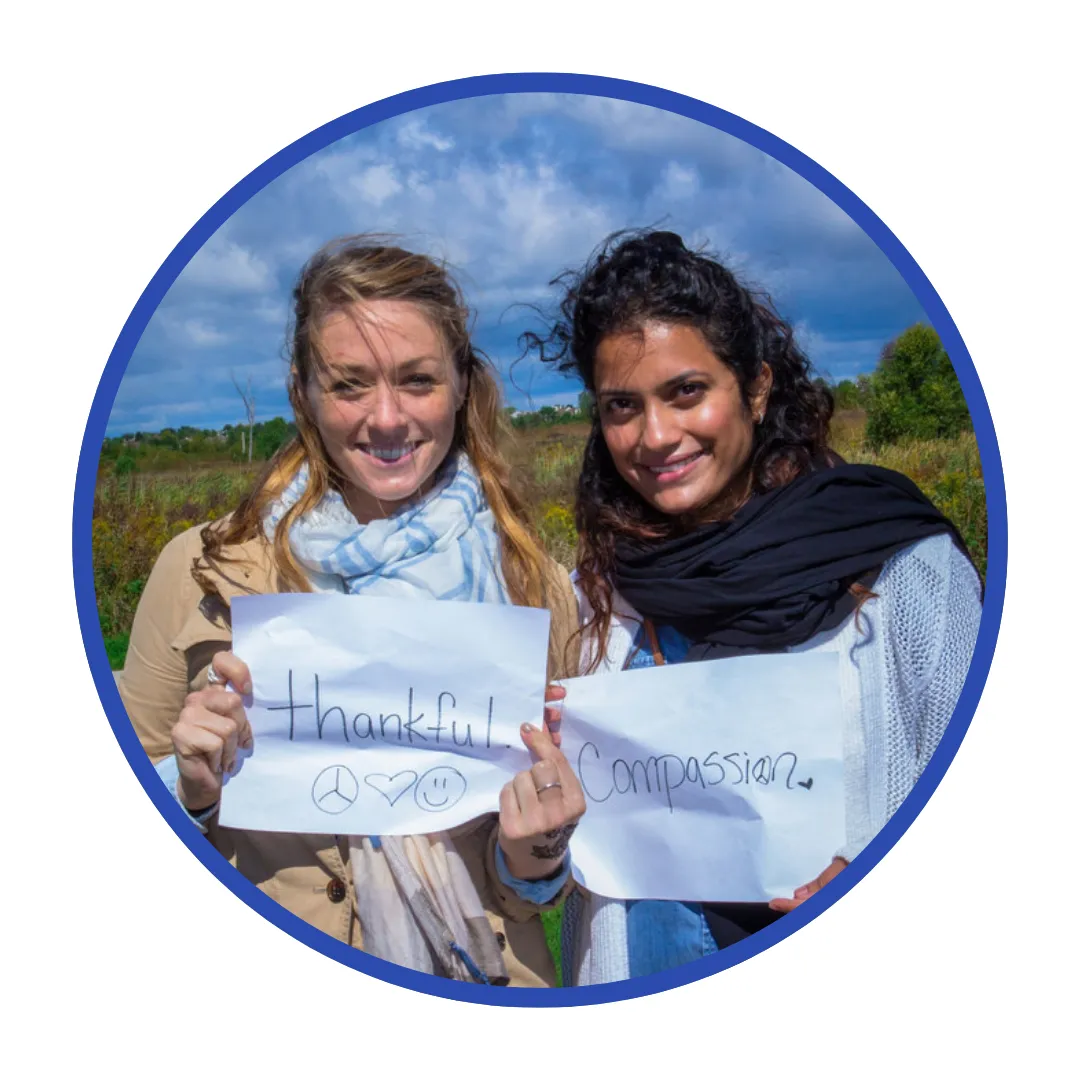

Volunteer locally
or online.
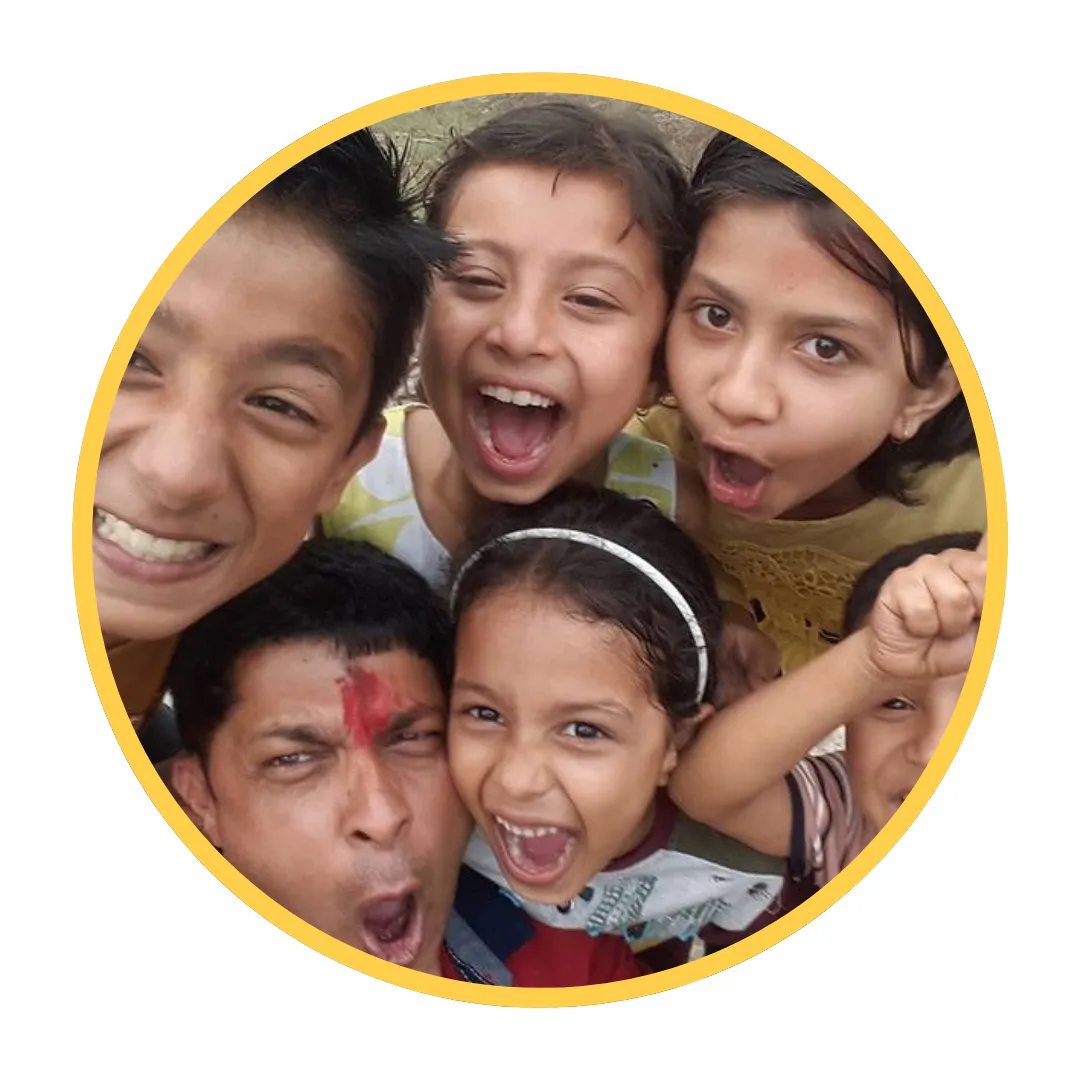

Make your dollars
impact lives.
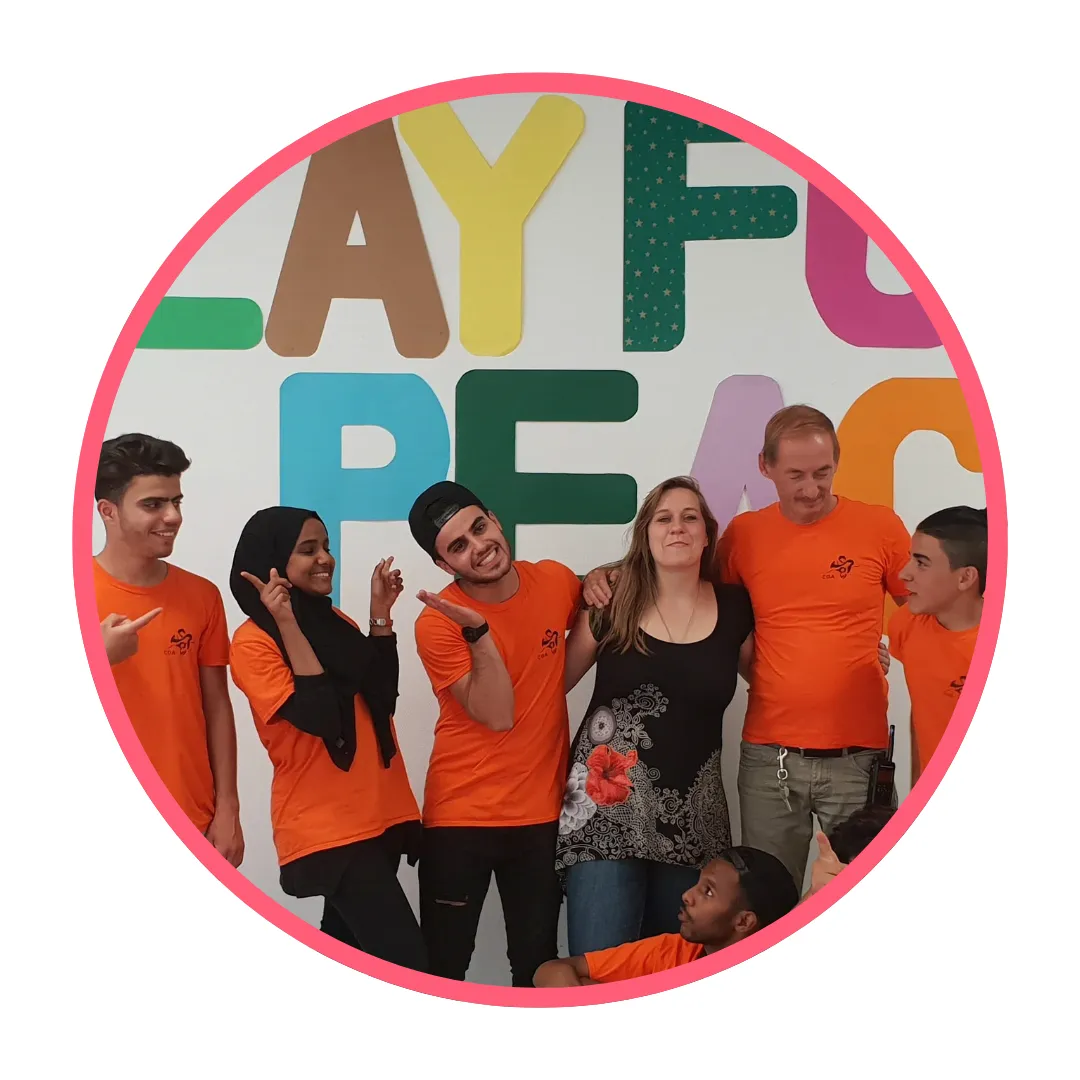

Bring Play for Peace
to a community.
Sign Up For Our Newsletter
Read our stories, learn about our events, get conflict transformation tips and
find out how you can get involved in our work to bring peace
to children in communities around the world.
Create Peace Everywhere
Join us from anywhere in the world to access experiential activities, wellness and social emotional learning techniques and skills to create a more peaceful future, one act of compassion at a time.

Is your school looking for interactive peace activities, curriculum or training? Access resources here.

Does your organization work with children or youth and want to increase engagement and cooperation? Find out how we can work together.

Want to engage your employees in interactive wellness workshops and inspiring volunteer experiences? Explore our options.
Compassion + Connection + Community
Read our stories and be inspired. Share and spread the word.
Celebrating Our 26th Anniversary
Play for Peace celebrated 26 years with a global virtual event, launching new tools like the Clubs Starter Kit and honoring volunteers, partners, and facilitators dedicated to spreading peace worldwid... ...more
Event Highlights
October 03, 2024•2 min read
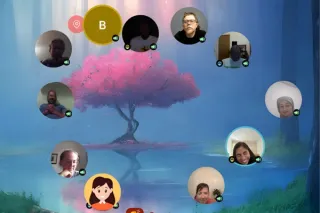
Meet The Council: Chad
Meet Chad and discover insights and inspiring stories from the Play for Peace Council, showcasing leadership, transformation, and the impactful work driving our mission forward. ...more
Event Highlights
September 16, 2024•2 min read
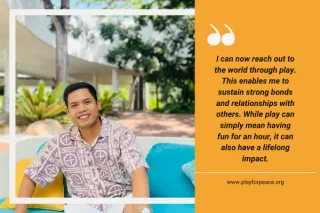
Artist Reflect On Our 25 Year Journey
Join Dan Jenkins as he reflects on 25 years of Play for Peace's journey, sharing powerful insights and milestones that have shaped its mission of spreading peace worldwide. ...more
Event Highlights
September 13, 2024•2 min read

